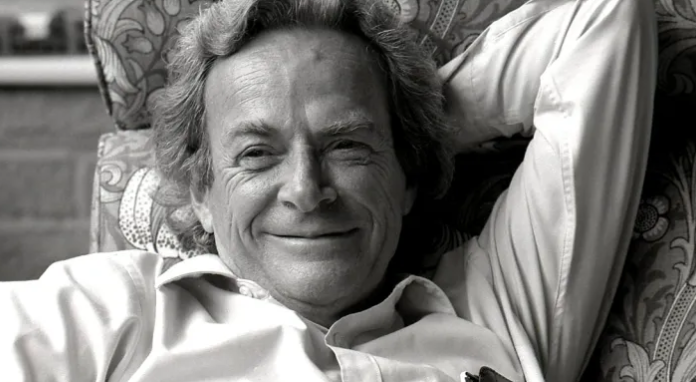I have always been a big fan of Richard Feynman since I saw him on the Challenger Space Shuttle commission where he discovered the cause of the crash by using a G-clamp, some ice, an O-Ring and a glass. (Look it up on You-Tube).
However he is a renowned physicist known for his work in quantum mechanics and quantum electrodynamics
He also left a legacy of insightful and often humorous quotes.
On Scientific Integrity
“The first principle is that you must not fool yourself, and you are the easiest person to fool”
On Curiosity and Knowledge
“I would rather have questions that can’t be answered than answers that can’t be questioned”
On the Joy of Discovery
I have a friend who’s an artist and has sometimes taken a view which I don’t agree with very well.
He’ll hold up a flower and say, ‘Look how beautiful it is,’ and I’ll agree.
Then he says, ‘I, as an artist, can see how beautiful this is, but you as a scientist take this all apart and it becomes a dull thing.’
And I think that he’s kind of nutty. First of all, the beauty that he sees is available to other people and to me too, I believe.
Although I may not be quite as refined aesthetically as he is, I can appreciate the beauty of a flower.
At the same time, I see much more about the flower than he sees. I could imagine the cells in there, the complicated actions inside, which also have a beauty.
I mean, it’s not just beauty at this dimension; there’s also beauty at a smaller dimension.
The fact that the colours in the flower evolved in order to attract insects to pollinate it is interesting; it means that insects can see the colour.
It adds a question: Does this aesthetic sense also exist in the lower forms that… why is it aesthetic?
All kinds of interesting questions which the science knowledge only adds to the excitement, the mystery, and the awe of a flower.
It only adds. I don’t understand how it subtracts.”
On the Unknown
“We are at the very beginning of time for the human race. It is not unreasonable that we grapple with problems. But there are tens of thousands of years in the future. Our responsibility is to do what we can, learn what we can, improve the solutions, and pass them on.”
On the Nature of Science:
“Science is the belief in the ignorance of experts.”
On Learning:
“Study hard what interests you the most in the most undisciplined, irreverent, and original manner possible.”
On Understanding:
“If you can’t explain something to a first-year student, then you haven’t really understood it.”
On Honesty in Science:
“The idea is to try to give all of the information to help others to judge the value of your contribution; not just the information that leads to judgment in one particular direction or another.”
On the Value of Uncertainty:
“I can live with doubt and uncertainty and not knowing. I think it’s much more interesting to live not knowing than to have answers which might be wrong.”
On the Beauty of Mathematics and Physics:
“Physics is like sex: sure, it may give some practical results, but that’s not why we do it.”
I hope that you enjoyed them as much as me?


Recent Comments